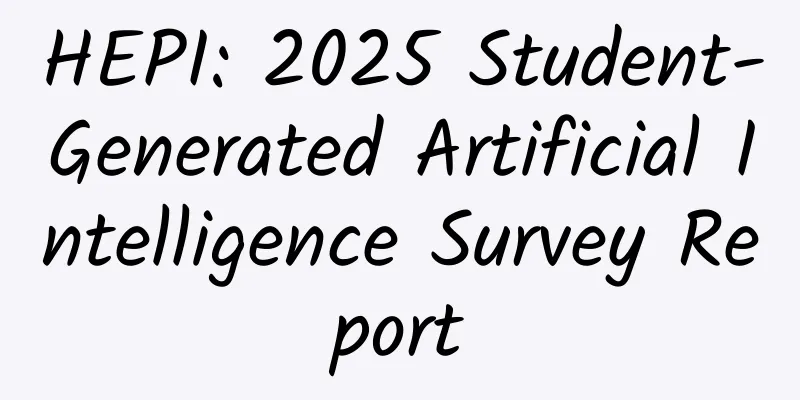HEPI: 2025 Student-Generated Artificial Intelligence Survey Report

|
Based on the 2024 AI Survey, the UK Higher Education Policy Institute surveyed 1,041 full-time undergraduates through Savanta to understand their use of generative artificial intelligence (GenAI) tools. Student use of AI has surged over the past year, with nearly all students (92%) now using AI in some form, up from 66% in 2024; about 88% of students have used GenAI in assessments, up from 53% in 2024. The main uses of GenAI are to explain concepts, summarize articles, and propose research ideas, but a significant number of students (18%) directly include AI-generated text in their assignments. When asked why they use AI, students most often say it saves time and improves the quality of their work. The main factors that prevent them from using AI are the risk of being accused of academic misconduct and the fear of getting wrong or biased results. Women are more concerned about these factors than men, who expressed more enthusiasm for AI across the survey, as do wealthy students and STEM students. The digital divide found in 2024 appears to have widened. Institutions have a strong record of protecting the integrity of assessments, with 80% of students agreeing their institution has a clear AI policy and 76% saying their school would see the use of AI in assessments—both increases from 2024. While the vast majority of students believe having good AI skills is essential, only 36% say their institution provides support to develop those skills. The gap between the number of students who would like to be offered AI tools and the number who are currently offered them has widened. AI literacy among faculty and staff has improved, with 42% of students agreeing that faculty and staff are “well equipped” to help them use AI, compared to just 18% in 2024. The survey found that less than half of students (45%) had used AI during their school years, and more agreed that AI-generated content would get good grades in their subject (40%), compared with 34% who disagreed. But they were lukewarm about the possibility of exams assessed by AI: 34% would put in more effort, 29% would put in less effort, and 27% would make no change in their effort.
|
Recommend
Sony opens 50 million PlayStations to China to cultivate Chinese game developers
As we all know, a ban in 2000 caused a break in c...
You can "explore" outer space by swiping your phone! Have smart mobile devices evolved to this level now?
Using millions of Android smartphones around the ...
It’s time for the “Queen of Fruits” to show off again, but I really don’t recommend you to “praise” it
Mangosteen is known as the "Queen of Fruits&...
Why are the red, green and funds on the health code reversed?
Recently, everyone must be paying close attention...
The top 10 marketing events that went viral in 2020
Recently, Bilibili announced the annual barrage r...
Xu Yuan 2022-02-13 Reasons and outlook for the 2022 stock market correction
Xu Yuan 2022-02-13 Reasons for the 2022 stock mar...
With the emergence of “evil nickel”, will the price of electric vehicles be able to remain unsustainable?
The price of nickel has been rising like crazy re...
How to plan group buying activities on mini programs?
The author was recently responsible for designing...
The "forbidden zone" that became popular overnight has become a "scenic spot". What makes people love and fear Ailao Mountain?
During the just-passed National Day holiday, Yunn...
Be careful! If you see them, show zero tolerance!
Recently, the alligator gar in Ruzhou, Henan Prov...
"Sniper" or "Silly Sheep", what kind of fantail sand cone are you?
"Sniper" or "Silly Sheep", wh...
Correction! The whole network thanks the "Cheetah" for winning the gold medal in short track speed skating, but it was actually the "Flying Cat" who made the contribution
|||| Compiled by New Media Editor Lai Tianying Wh...
Beat Tesla! This electric car has a range of 500 kilometers and supports fast charging
Electric vehicles can be said to be the hottest f...
Super complete and detailed! 4 important links of user operation!
The first thing to be clear is that the links of ...
Forbes columnist: Why I said Xiaomi wants to acquire Xunlei
[[138837]] Yesterday, Xunlei CEO Zou Shenglong pu...



![December Marketing Node Reminder [Dry Goods Collection]](/upload/images/67cc113c6b135.webp)





